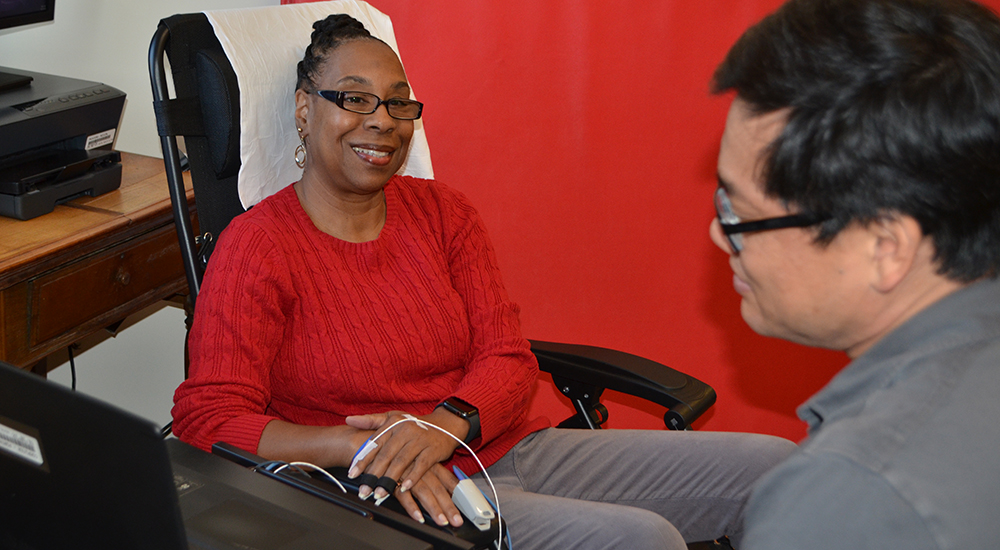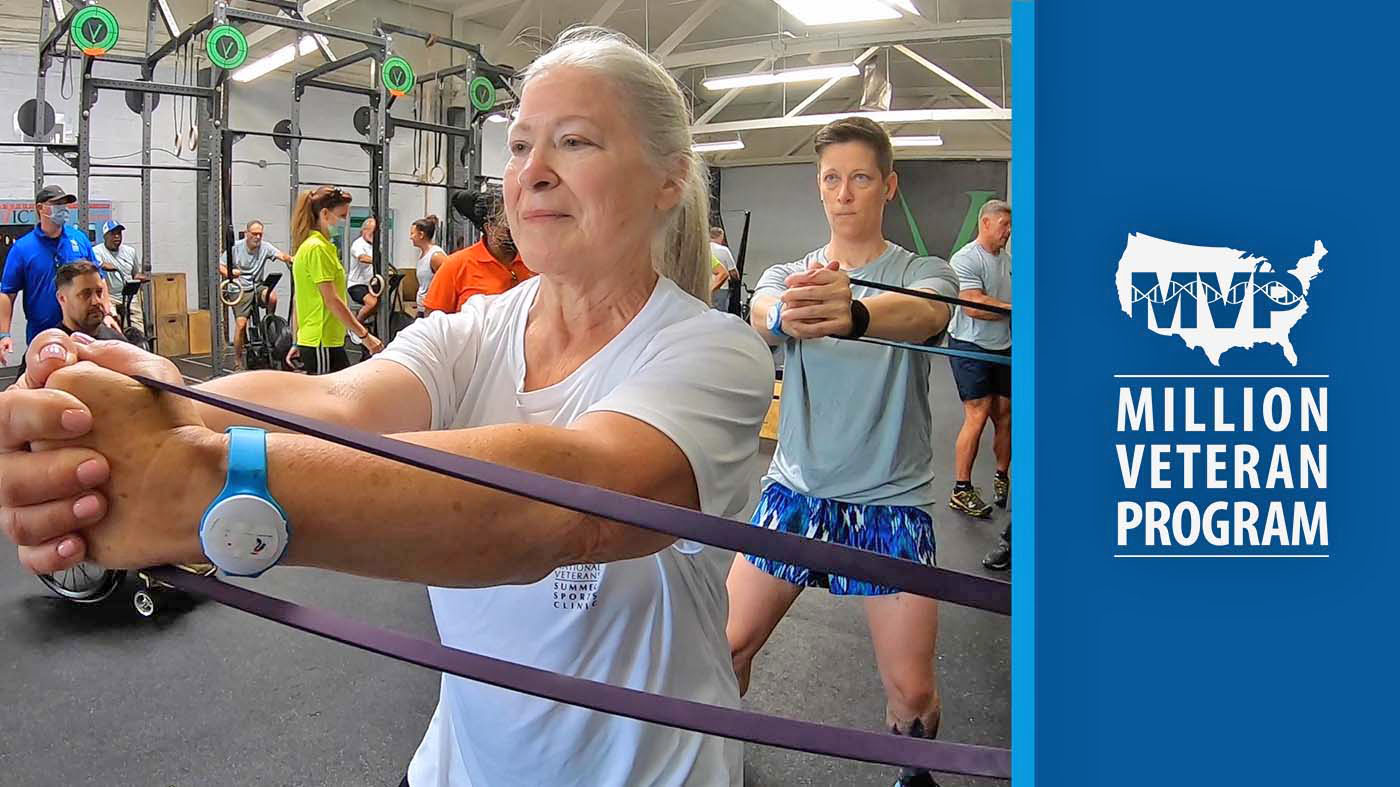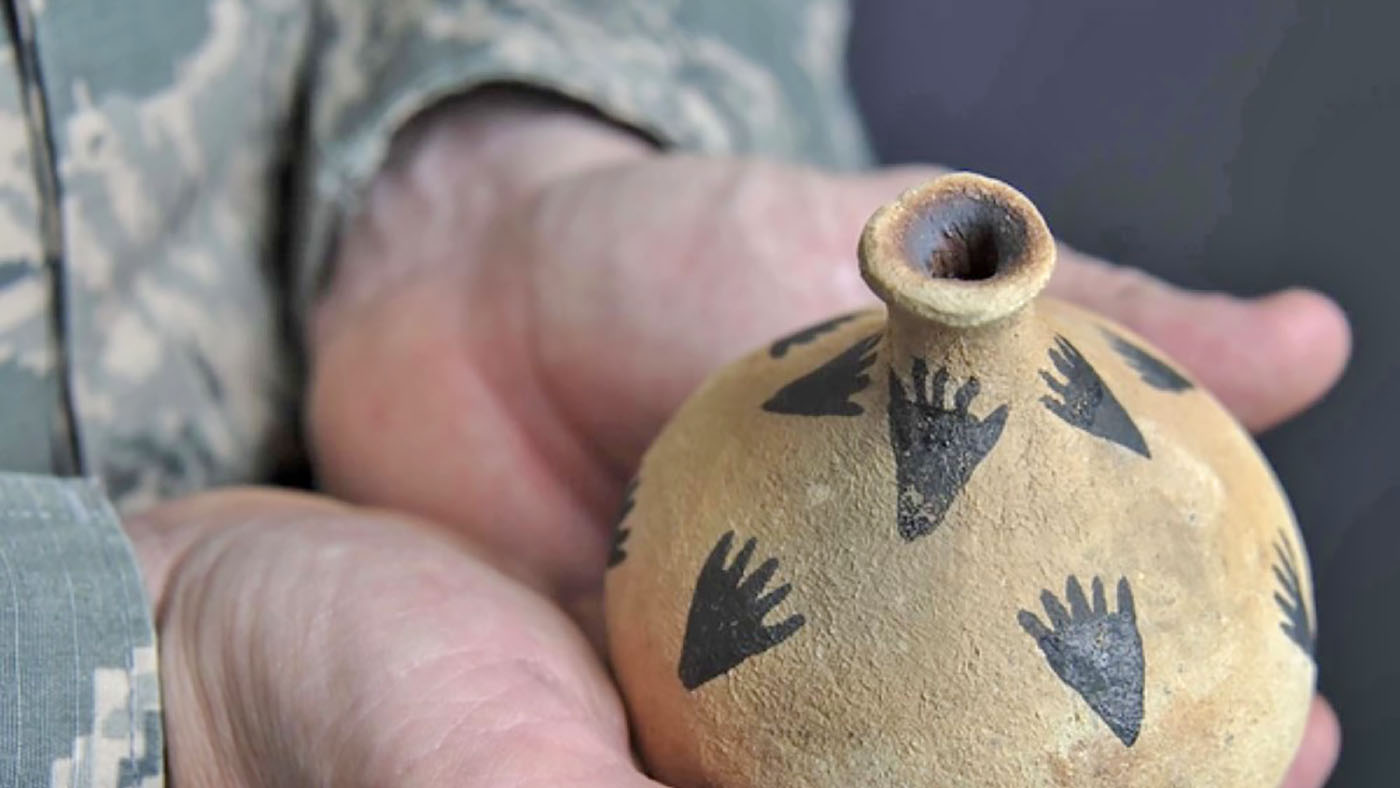Coast Guard Veteran Osretta Miller came to the Veterans Integrative Pain (VIP) Center at the Central Virginia VA Health Care System to find relief from her chronic pain and depression. She struggled to walk and often didn’t want to leave her house. As a result, her primary care doctor at VA recommended the VIP Center as an option for further treatment.
At 58, Miller’s pain was the result of inflammation and fibromyalgia.
“I could barely walk. My hands were very tender,” Miller said. “I was really messed up when I first began.”
Miller tried biofeedback, among other treatments, at the VIP Center. Biofeedback is a body-based treatment that teaches Veterans to improve control over their nervous system. In turn, the nervous system is often out of balance due to chronic pain.
“The stress or fight-flight response can be turned on all the time when someone has chronic pain. This results in a host of physical and emotional issues over time,” said Natasha Mroczek, a clinical health psychologist in the VIP Center. “They can include worsening pain, depression and insomnia to name a few.”
“I can do things on my own now”
Mroczek says biofeedback helps people gain better control over their stress response. They can wind down the stress response and engage the relaxation or recovery response.

Acupuncture is one of several complementary treatments care providers can add to a Veteran’s care plan.
The biofeedback machine has sensors attached to the body providing real time vitals like heart rate, breathing, skin temperature, perspiration, muscle tension and brain waves.
“I can do things on my own now,” Miller said. “The program worked for me. My family has seen a big difference. I’m nowhere near where I was.”
Elmer Ligh, a physical therapist and lead biofeedback provider in the VIP Center, used biofeedback to treat over 100 Veterans last year, including Miller.
“I have seen how chronic pain affects Veterans more than just physically,” said Ligh. “Using biofeedback, I’m able to address the biopsychosocial aspects of chronic pain and empower Veterans by teaching them new skills which will help them experience their pain from a new perspective.”
Ligh’s outcomes have been overwhelmingly positive. After about eight weekly biofeedback sessions, Veterans have reported significant improvements in their activity level, sleep, mood and stress.
“Everything in the program really does work, if you apply it,” Miller said.
When Miller first came to the clinic, she said she experienced a pain level of 10. Now, her pain level stays around four or less.
The VIP Center has a variety of treatment options available to Veterans with chronic pain. Movement-based treatments include tai chi and sarete aikido. There also are education and psychotherapy-based modalities, such as mindfulness meditation, cognitive behavioral therapy and one of Miller’s favorites, the anti-inflammatory diet group.
From a size 18 to a 10
“I lost at least 20 pounds from changing my diet and learning how to read food labels,” Miller said. She graduated from the program in November 2018 and went from a size 18 in clothing to a size 10.
Care providers can add complementary treatments to a Veteran’s care plan, such as medical acupuncture, chiropractic care, music therapy and support groups, if needed.
The goals are to improve the quality of life for Veterans with chronic pain, restore daily functioning, improve emotional health and increase healthy coping strategies.
If you want to improve your quality of life, take charge and visit www.va.gov/wholehealth.
Megan Kon is a public affairs specialist with the Central Virginia VA Health Care System.
Topics in this story
More Stories
MVP’s research informs personalized care for Veterans, supporting whole health and beyond.
More than 4,000 American Indian/Alaska Native Veterans have been approved for the copayment exemption and we're here to help you apply for yours, too.
The screening is an important conversation with your VA health care provider. Here’s the reality behind common misconceptions.






